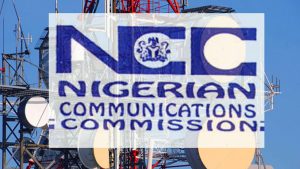Nigeria’s telco sector contributes N2.51trn to GDP
June 9, 2023498 views0 comments
By Alexander Chiejina
The financial value added to Nigeria’s gross domestic product (GDP) by the telecommunications and information services sector in Nigeria came to a hefty N2.508 trillion in the first quarter of 2023, representing 14.13 percent of the total.
Read Also:
According to data from the National Bureau of Statistics (NBS), the sector’s performance in the third quarter of 2022, when it recorded 13.55 percent, increased by 4.3 percent.
When contrasted year over year, the growth showed an improvement, rising from 12.94 percent in the first quarter of 2022 to 14.13 percent in 2023, which is around 9.19 percent increase.
“The 46 different economic sectors that make up the telecom and information services baskets were used to compute the percentage of the economy that was contributed by telecom.
“The Nigerian Communications Commission (NCC) has pushed and implemented an innovative and predictable regulatory framework for the telecom industry, which has helped the country’s telecom sector maintain its positive outlook,” Reuben Muoka, director, Public Affairs, Nigerian Communications Commission (NCC), said in reaction to the GDP release.
 One of the major achievements of the telecom sector during that time was the $820.8 million in federal revenue generated from the 5G spectrum license fees paid by the three final winners, MTN, MAFAB, and Airtel.
One of the major achievements of the telecom sector during that time was the $820.8 million in federal revenue generated from the 5G spectrum license fees paid by the three final winners, MTN, MAFAB, and Airtel.
“After receiving its licenses in December 2021, MTN and MAFAB both started offering 5G services. Airtel is scheduled to begin offering services this month, in June 2023, after receiving its license in December 2022. The introduction of Starlinks broadband services, a satellite-based wireless broadband service with potential statewide coverage, was another significant advance in the industry. This came after the Commission granted SpaceX, controlled by Elon Musk, a license. Various regions of the nation now offer the services,” Muoka added.
The telecom sector is exhibiting a remarkable track record of economic benefits, according to growth data. As of April 2023, there were 223.6 million phone subscribers, giving the country a teledensity of 117 percent. There were 157 million Internet users over the same period, while 92 million people had broadband subscriptions, representing 48 percent of the country’s population.
It would be recalled that the NCC recently unveiled the Strategic Vision Plan (SVP) 2021–2025 to reimagine and restructure the nation’s telecoms environment. The five-point agendas of the SVP 2021–2025 are as follows: The facilitation of infrastructure for a digital economy, which fosters national development; Promotion of fair competition, inclusive growth, increased investment, innovative services, and improvement of quality of service (QoS) for enhanced consumer quality of experience (QoE); Organizational renewal for operational efficiency and regulatory excellence; Promoting strategic partnership and collaboration.
The National Communications Commission (NCC), led by Umar Garba Danbatta, executive vice chairman, started the creation of ICT Parks in each of the six geopolitical zones, and the commission is in the process of finishing it. This is in line with the federal government’s National Digital Economy Policy and Strategy (NDEPS 2020-2030), which aims to accelerate digital development and equip Nigerians with the necessary technological skills to enable them to develop technological solutions that will drive digital transformation throughout the country. When finished, it would help young people acquire digital skills, encourage inventions, give young people in Nigeria jobs, and ultimately support the federal government’s overarching vision for the digital economy.
